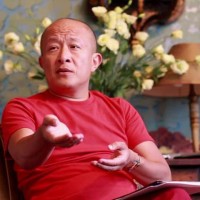Ultimately we must abandon the path ~ Dzongsar Khyentse Rinpoche
My practice is devotion to the buddhist path; others may choose doubting the buddhist path. But as Dharmakirti said, ultimately we must abandon the path. So I hope in the end we will meet where we have nothing to fight over. Dzongsar Khyentse Rinpoche
